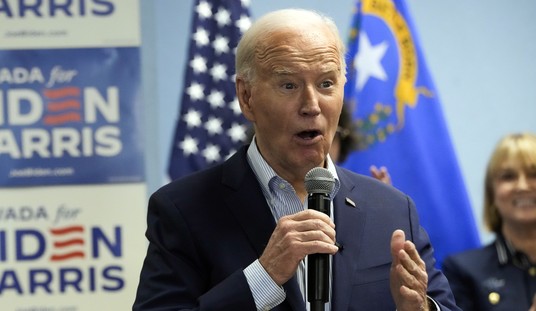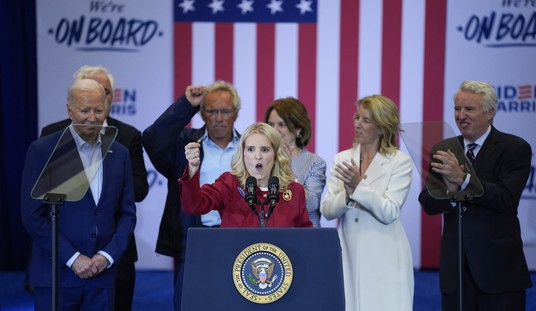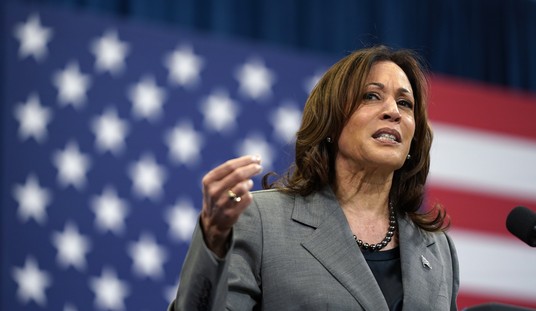Hurricane Ken Salazar just hit the Gulf of Mexico. The Interior Secretary reimposed a 6 month moratorium on drilling in the Gulf — a moratorium that will cause economic devastation to workers in the Gulf region. According to the Washington Times, “saying oil companies still are at risk of another catastrophic spill, the Obama administration announced a new moratorium Monday on drilling in the outer continental shelf, three weeks after a judge rejected the first ban. The new ban covers most of the same drilling as the old moratorium, and lawmakers from states bordering the Gulf of Mexico said it will hurt jobs and leave already sputtering economies in even worse shape.” This could be called the Obama Administration’s Anti-Stimulus plan of 2010.
The House has 10 suspension votes scheduled. The Senate is scheduled to take up TARP, Jr. and may schedule a vote on the War Supplemental. The Senate Judiciary Committee nomination of anti-gun activist Elena Kagan to the U.S. Supreme Court is expected to be “held over” for a week.
The big issue today for conservatives is the so called “Financial Services Reform” bill. The AP, reports that “Sens. Olympia Snowe and Scott Brown pushed sweeping financial legislation to the edge of final passage Monday, both announcing they intend to support the regulatory overhaul despite initial misgivings.” Gary Becker and Richard Posner write on The Becker-Posner Blog the following 5 faults with this legislation:
- “The bill adds regulations and rules about many activities that had little or nothing to do with the crisis.” – This bill is over 2K pages and is a complete mess of new regulations. The fact that extraneous measures were added to this bill not related to the causes of the 2008 financial crisis is an outrage. Becker-Posner write that “the bill gives the Fed authority to limit interchange or ‘swipe’ fees that merchants pay for each debit-card transaction.” This is feel good politics, because I may feel some hope that the federal government is saving me from a fee, yet that cost will end up being passed on to me in some other way. It is also possible that these new regulations may cause another financial crisis – now that would be ironic.
- “The Dodd-Frank bill gives several government agencies considerable additional discretion to try to forestall another crisis, even though they already had the authority to take many actions.” Giving the federal government more expansive power is not something Americans want right now. The Tea Party movement is solid in the idea of a limited federal government. Now is the wrong time to grant the Department of Treasury and the Fed vast new powers to address a crisis when they already have authority to address with existing powers.
- “Insufficient capital relative to bank assets was an important cause of the financial crisis.” The bill has a complicated means to require more capital, yet Becker-Posner argue that a simple requirement would have been a better means to require more capital reserves in banks.
- “One of the most serious omissions is that the bill essentially says nothing about Freddie Mac or Fannie Mae.” This bill does nothing to reform or abolish Freddie and Fannie. The Foundry (published by my employers) argued that, “supporters of Sen. Chris Dodd’s financial regulation bill say it will end financial bailouts. In fact, the Senate — anxious to reassure Americans on that fact — even added an amendment last week with a stated purpose ‘[t]o prohibit taxpayers from ever having to bail out the financial sector.’ But someone forgot to tell the folks across town at Freddie Mac and Fannie Mae. Freddie last week announced it had lost $8 billion in the first quarter of the year, and would be asking for another $10.6 in taxpayer help. And today, its twin Fannie announced a $11.5 billion loss, and asked for a further $8.4 billion in aid from taxpayers. That’s in addition to the nearly $145 billion in aid to Fannie and Freddie have already received.” How is this bill “reform” when nothing is being done to abolish an organization that has wasted over hundreds of billions of your tax dollars? This bill is not reform. Any legislation that purports to conduct reform and does nothing about Fannie and Freddie is not reform. Don’t be fooled by this legislation, because the elites in Washington will do anything to protect friends who have worked at Fannie and Freddie.
- “Many proposals in the bill will have highly uncertain impacts on the economy.” Becker-Posner point to new mortgage regulations, hedge fund regulations and consumer “protections” as three examples of new red tape that may slow and already slow economy. Yet again, the elites in Washington think they know better than the experts on Wall Street and have chosen to empower bureaucrats.
This bill is terrible policy, omits real reform and it may harm the economy. Conservatives need to watch this legislation closely, because it is one Senate vote away from a Presidential signing ceremony.
10:45 UPDATE: Red Mass Group, a conservative blog following Massachusetts politics, in a blog post by Rob Eno titled “A vote for Dodd-Frank will ‘end community banking‘” argues that Senator Scott Brown is mistaken to support Dodd-Frank. “Senator Brown, this legislation which you are supporting will have the immediate effect of drying up capital and killing jobs. That is reason enough to change your mind and not support the legislation.” Evidently, the Tea Party movement in Massachusetts is none too happy with Senator Brown’s support for an idea that will end community banking in Massachusetts.













Join the conversation as a VIP Member